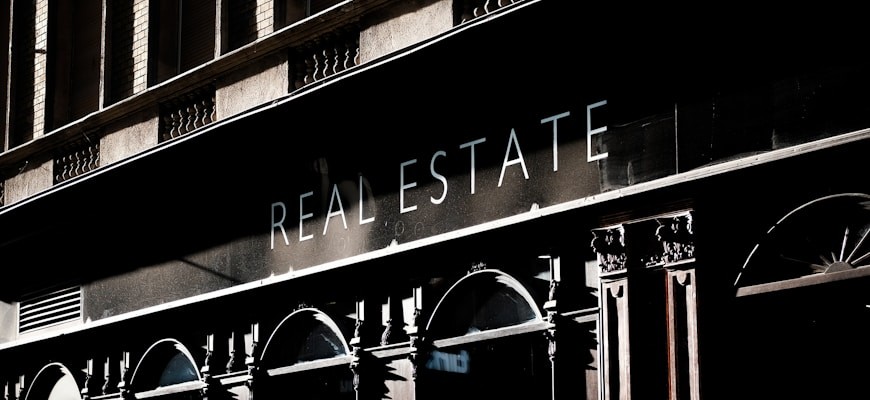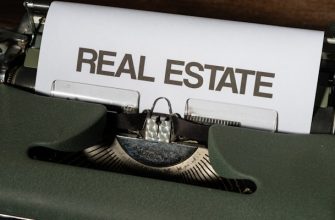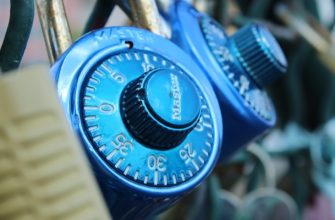- Understanding RWA Regulations in the Context of Tokenized Real Estate
- Key Challenges in Complying with RWA Laws for Digital Assets
- The Role of Smart Contracts in RWA Compliance for Real Estate Tokens
- Best Practices for Maintaining Compliance in Tokenized Property Transactions
- Navigating Regulatory Frameworks: A Guide for Real Estate Tokenization
- Future Trends: The Evolving Landscape of RWA Compliance in Real Estate
Understanding RWA Regulations in the Context of Tokenized Real Estate
Understanding RWA (Real World Asset) regulations is essential for stakeholders in the tokenized real estate market. The landscape of tokenized real estate is rapidly evolving, necessitating a comprehensive grasp of RWA regulations. Compliance with these regulations ensures not only the legality of tokenized assets but also the protection of investors and the integrity of the market.
Tokenized real estate presents unique challenges in terms of RWA compliance. The intersection of traditional real estate laws and modern blockchain technology creates a complex regulatory environment. Stakeholders must navigate various legal frameworks, which may include property rights, securities laws, and financial regulations. Understanding the nuances of these regulations is critical to successfully operating within the tokenized real estate sector.
- Property Rights: Tokenized real estate must adhere to existing property laws, ensuring that ownership rights are clearly defined and protected.
- Securities Regulations: Many tokenized real estate offerings may be classified as securities, necessitating compliance with securities laws to avoid legal repercussions.
- Financial Regulations: Compliance with anti-money laundering (AML) and know your customer (KYC) requirements is crucial in the tokenized real estate space.
Investors and developers should also stay informed about the evolving regulatory frameworks that govern tokenized assets. Regulatory bodies are increasingly focusing on the implications of blockchain technology in real estate, leading to potential changes in compliance requirements. Engaging with legal experts who specialize in RWA regulations can provide valuable insights and help navigate this dynamic landscape.
In conclusion, understanding RWA regulations is vital for the success of tokenized real estate ventures. As the market continues to develop, maintaining compliance with these regulations will be key to ensuring the viability and trustworthiness of tokenized real estate investments. This understanding not only facilitates smoother transactions but also fosters a more secure investment environment for all participants in the tokenized real estate market.
Key Challenges in Complying with RWA Laws for Digital Assets
The compliance landscape for Real-World Asset (RWA) laws presents several key challenges for stakeholders involved in digital assets, particularly in tokenized real estate. Navigating these regulations requires a comprehensive understanding of both local and international legal frameworks that govern the tokenization of physical assets.
- Regulatory Uncertainty: The lack of clear guidelines regarding tokenized real estate can create confusion among investors and developers. Understanding the nuances of RWA laws is essential to mitigate risks associated with compliance.
- Jurisdictional Variability: Different regions have varying regulations concerning digital assets. This variability requires a thorough analysis of applicable laws in each jurisdiction where the tokenized real estate operates.
- Consumer Protection: Ensuring compliance with consumer protection laws is crucial. Stakeholders must ensure that tokenized real estate offerings are transparent and that investors are adequately informed about risks.
- AML and KYC Requirements: Anti-Money Laundering (AML) and Know Your Customer (KYC) regulations are critical in the digital asset space. Compliance with these requirements is necessary to prevent fraudulent activities and build trust with investors.
- Tax Implications: The taxation of tokenized assets can be complex. Understanding the tax obligations related to both the purchase and sale of tokenized real estate is essential for compliance and financial planning.
Addressing these challenges requires a strategic approach that includes continuous monitoring of regulatory changes, investment in legal expertise, and development of robust compliance frameworks tailored to the unique aspects of tokenized real estate. As the digital asset landscape evolves, staying informed about RWA regulations will be crucial for maintaining compliance and achieving long-term success.
The Role of Smart Contracts in RWA Compliance for Real Estate Tokens
Smart contracts play a pivotal role in ensuring compliance with Real World Asset (RWA) regulations in the realm of tokenized real estate. These self-executing contracts, built on blockchain technology, facilitate the automation of regulatory processes, enhancing transparency and security in real estate transactions.
By integrating smart contracts into real estate tokenization, stakeholders can streamline compliance checks, reducing the likelihood of regulatory breaches. Key functionalities of smart contracts include:
- Automated Compliance Verification: Smart contracts can automatically verify that all conditions of RWA regulations are met before a transaction is executed.
- Immutable Record-Keeping: Blockchain technology ensures that all transactions are recorded in an immutable ledger, providing a reliable audit trail for regulatory bodies.
- Real-Time Reporting: Smart contracts can generate real-time reports on compliance status, allowing for prompt adjustments if regulations change.
- Enhanced Security: The decentralized nature of smart contracts minimizes the risk of fraud, ensuring that only authorized parties can access sensitive transaction data.
Moreover, the use of smart contracts in tokenized real estate facilitates smoother interactions between various stakeholders, including investors, regulatory authorities, and property developers. This enhances trust and promotes a more robust regulatory framework within the RWA landscape.
In conclusion, smart contracts are essential for maintaining compliance in the tokenized real estate sector. By automating processes and ensuring transparency, they not only safeguard against regulatory pitfalls but also promote a more efficient market for real estate tokens.
Best Practices for Maintaining Compliance in Tokenized Property Transactions
Maintaining compliance in tokenized property transactions is crucial for ensuring the legality and security of real estate investments. Given the evolving landscape of regulations surrounding tokenized real estate, adherence to best practices is essential for stakeholders. The following guidelines are designed to help navigate the complexities of regulatory compliance in tokenized property dealings.
- Understand Local Regulations: Each jurisdiction may have specific laws governing real estate and tokenization. Familiarity with these regulations is vital to avoid legal complications.
- Conduct Due Diligence: Comprehensive due diligence should be performed on all properties involved in tokenized transactions. This includes verifying ownership, assessing property value, and ensuring that no liens or legal issues exist.
- Utilize Smart Contracts: Smart contracts can automate compliance processes, ensuring that all transactions follow pre-defined regulations. This technology enhances transparency and reduces the potential for fraud.
- Implement KYC and AML Procedures: Know Your Customer (KYC) and Anti-Money Laundering (AML) procedures must be integrated into the tokenized property transaction process. These measures help to verify identities and prevent illicit activities.
- Engage Legal Experts: Consulting with legal professionals who specialize in real estate and blockchain technology can provide invaluable insights into navigating complex regulations and ensuring compliance.
- Regular Compliance Audits: Conducting periodic compliance audits can identify potential gaps in adherence to regulations. This proactive approach can prevent issues before they escalate.
- Stay Informed on Regulatory Changes: The regulatory environment for tokenized real estate is constantly evolving. Staying updated on changes in laws and regulations ensures ongoing compliance and risk mitigation.
By implementing these best practices, stakeholders can enhance the security and legality of tokenized property transactions. Compliance is not merely a checkbox but a continuous process that fosters trust and integrity in the tokenized real estate market.
Navigating Regulatory Frameworks: A Guide for Real Estate Tokenization
Navigating the regulatory landscape is crucial for the successful tokenization of real estate assets. The process of real estate tokenization involves converting physical properties into digital tokens that can be traded on blockchain platforms. To ensure compliance with existing regulations, it is essential to understand the various legal frameworks that govern real estate tokenization.
Real estate tokenization must adhere to a multitude of regulations, including securities laws, anti-money laundering (AML) requirements, and know your customer (KYC) protocols. Each jurisdiction may impose specific requirements that must be met to facilitate a legally compliant tokenization process.
- Securities Laws: In many regions, tokenized real estate assets may qualify as securities, which means they are subject to specific registration requirements. Understanding whether a token is classified as a security is critical for compliance.
- AML and KYC Regulations: Compliance with AML and KYC is vital to prevent illicit activities. Tokenization platforms must implement robust processes to verify the identity of investors and monitor transactions.
- Tax Implications: Tokenization can have significant tax consequences for both issuers and investors. Awareness of the tax obligations related to tokenized real estate is necessary to avoid penalties.
- Consumer Protection Laws: Protecting investors is paramount. Adhering to consumer protection regulations ensures that investors are well-informed and safeguarded against potential risks.
Engaging legal experts with experience in real estate and blockchain technology is advisable to navigate these complex frameworks effectively. They can provide valuable insights into the regulatory requirements and help devise strategies for compliant real estate tokenization. Furthermore, staying updated on regulatory changes is essential, as the landscape is continuously evolving, and new laws may emerge that impact the tokenization process.
Ultimately, a thorough understanding of the regulatory frameworks surrounding real estate tokenization is essential for ensuring compliance. By proactively addressing these legal considerations, stakeholders can facilitate smoother transactions, build investor trust, and contribute to the overall growth of the tokenized real estate market.
Future Trends: The Evolving Landscape of RWA Compliance in Real Estate
The landscape of Real World Asset (RWA) compliance in the tokenized real estate sector is undergoing significant transformation, driven by technological advancements and regulatory changes. As the adoption of blockchain technology expands, the need for robust compliance frameworks becomes increasingly critical. The integration of smart contracts and decentralized finance (DeFi) solutions is reshaping how compliance is approached, ensuring that tokenized real estate adheres to existing laws and regulations.
Future trends suggest a shift towards more automated compliance processes. Automation will streamline RWA compliance, reducing human error and increasing efficiency. This evolution will likely lead to the development of comprehensive compliance platforms that integrate seamlessly with blockchain systems, providing real-time monitoring and reporting capabilities.
- Increased Regulatory Scrutiny: As tokenization gains traction, regulators are expected to implement stricter guidelines to protect investors and ensure market integrity.
- Enhanced Transparency: Tokenized real estate will benefit from improved transparency due to blockchain’s immutable ledger, allowing for better tracking of assets and compliance history.
- Collaboration with Regulators: The future will see greater collaboration between the real estate industry and regulatory bodies to create standards that facilitate compliance while fostering innovation.
- Integration of AI and Machine Learning: Advanced technologies will be utilized to analyze compliance data, identify risks, and automate reporting processes, enhancing overall compliance efficiency.
As these trends evolve, stakeholders in the tokenized real estate market must remain proactive in adapting to the changing compliance landscape. Building resilient compliance strategies that align with emerging trends will be essential for navigating the complexities of RWA regulations effectively. Engaging with industry experts and leveraging innovative technologies will be crucial for ensuring compliance in this dynamic sector.









